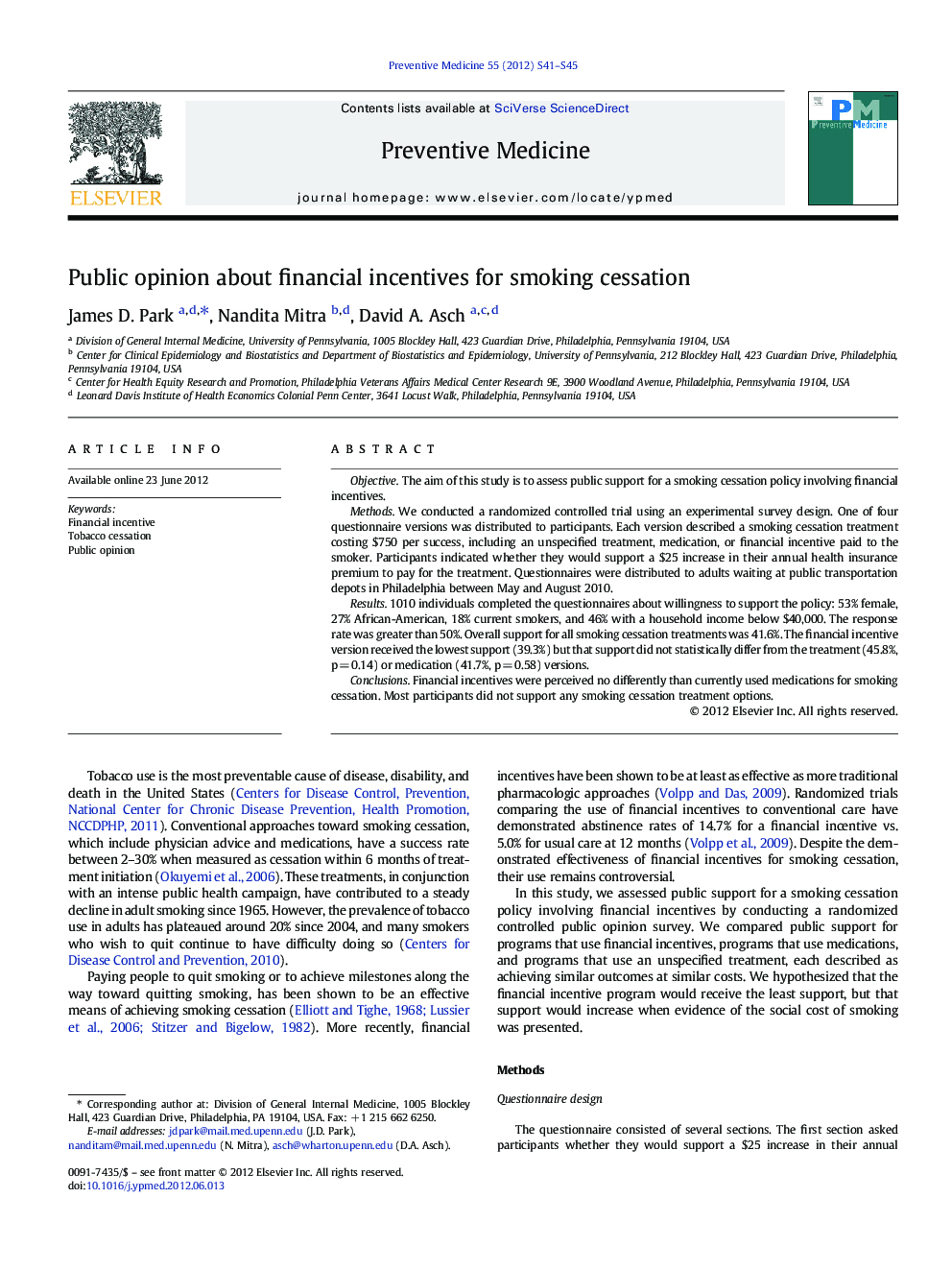| Article ID | Journal | Published Year | Pages | File Type |
|---|---|---|---|---|
| 3100777 | Preventive Medicine | 2012 | 5 Pages |
ObjectiveThe aim of this study is to assess public support for a smoking cessation policy involving financial incentives.MethodsWe conducted a randomized controlled trial using an experimental survey design. One of four questionnaire versions was distributed to participants. Each version described a smoking cessation treatment costing $750 per success, including an unspecified treatment, medication, or financial incentive paid to the smoker. Participants indicated whether they would support a $25 increase in their annual health insurance premium to pay for the treatment. Questionnaires were distributed to adults waiting at public transportation depots in Philadelphia between May and August 2010.Results1010 individuals completed the questionnaires about willingness to support the policy: 53% female, 27% African-American, 18% current smokers, and 46% with a household income below $40,000. The response rate was greater than 50%. Overall support for all smoking cessation treatments was 41.6%. The financial incentive version received the lowest support (39.3%) but that support did not statistically differ from the treatment (45.8%, p = 0.14) or medication (41.7%, p = 0.58) versions.ConclusionsFinancial incentives were perceived no differently than currently used medications for smoking cessation. Most participants did not support any smoking cessation treatment options.
► Experimental survey assessing perceptions of patient-directed financial incentives. ► No targeted disfavor towards patient-directed financial incentive. ► Financial incentives provoke greater call for personal responsibility in health. ► Negative perceptions may be targeted towards socially stigmatized health behavior.
